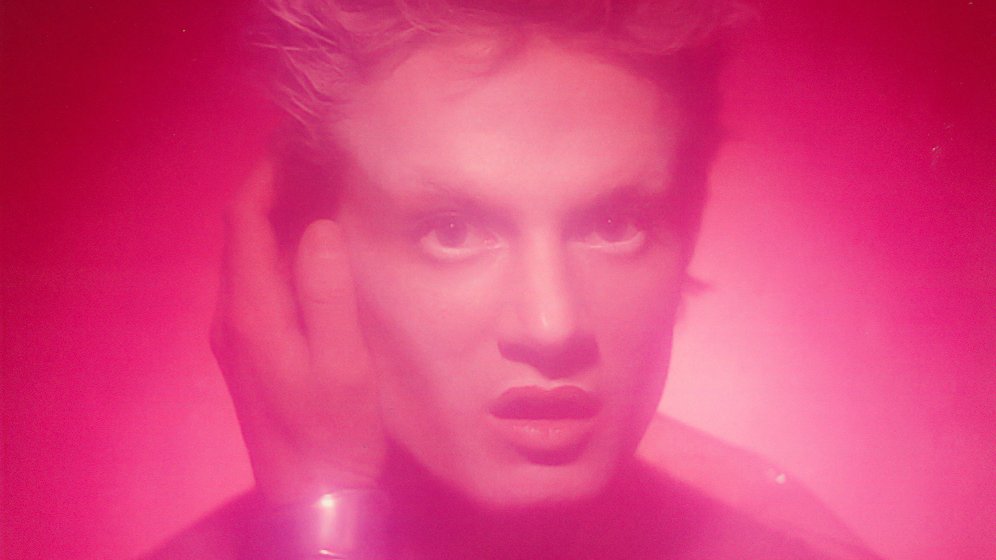
On Thursday I went to the British Film Institute on the South Bank for a special talk about the influence of certain extraordinarily flamboyant gay performers - Jackie Curtis, Lindsay Kemp and Jayne/Wayne County specifically - upon the early 70s musical phenomenon known as "Glam Rock".
The marvellous Rupert Smith (of "House of Homosexual Culture" fame), presenting, drew upon some rare photographs and even rarer video footage to illustrate the subtle ways our own homegrown (and mainly straight) stars of the genre - Bryan Ferry, Marc Bolan and David Bowie among them - took a lot of the decadence embraced by the post-Warhol, post-psychedelia artists and performers who congregated in New York at the turn of the decade, and made it their own (with far greater commercial success, of course).

The occasion was the premiere at this year's London Lesbian and Gay Film Festival of the film documentary Jobriath AD (for which I sadly didn't manage to get a ticket), which charts the life, rise, and spectacular fall of the man described as "the world's first gay rock star", and features contributions from stars at the time, together with newer fans such as Jake Shears, Stephen Merritt, Joey Arias, and Marc Almond.

Mr Almond wrote the following for The Guardian:
In Bolan, Bowie and Ferry, we had three straight men. The press needed a whipping boy, someone to laugh at. The US was having its own brief, glam-rock moment. Enter Jobriath, who introduced himself to the world with the career-killing words: "I am the true fairy of rock." To the British music press, he seemed a charlatan and, worse, an American who had supposedly plagiarised our beloved Bowie. He was kicked, bullied and beaten by the critics – and I adored him instantly for that.Despite (or maybe bcause of) this catastrophic failure, acts as diverse as the Pet Shop Boys, Gary Numan, Def Leppard's Joe Elliot and Siouxsie Sioux have cited him as an influence, and Morrissey is perhaps Jobriath's most prominent celebrity fan - it is said the moody one fought to get Jobriath's albums re-issued in the 1990s.
Jobriath (born Bruce Wayne Campbell) was a readymade entity with no big backstory, yet to those in the know he was thrilling and seductive, a guilty secret. I remember, before hearing a note, taking a journey to the big city to buy his first album, the eponymous Jobriath, on import. Its striking cover showed him with porcelain skin and film-star ruby lips, a fallen, broken, beautiful statue. On a first listening, the music is a baffling mix of glam, musical theatre and 1970s rock. At a time when we craved simple guitar chords and a Starman chorus, Jobriath seemed just too musical, too clever – not pop enough. His voice had a touch of Mick Jagger at his most sluttish (like that other wonderful US glam import, David Johansen of the New York Dolls). He was a mix of wide-eyed innocent and world-weary punk. And though there was a nod to Ziggy in the vowels, Bowie he was not.
For me, above all else, he was a sexual hero: truly the first gay pop star. How extreme that was to the US at the time. His outrageous appearances on the hallowed US rock show The Midnight Special prompted shock, bewilderment and disgust. Everyone hated Jobriath – even, and especially, gay people. He was embarrassingly effeminate in an era of leather and handlebar moustaches.
Here are those shocking (at the time) performances from The Midnight Special in 1974:
And here is the trailer for the documentary Jobriath AD itself:
Jobriath died with complications arising from AIDS in 1983, aged 36, while living in a pyramid on top of the Chelsea Hotel in New York.
The star who never was certainly left an extraordinarily camp legacy.
Jobriath pages on the fab Queer Music Heritage site
Read an excellent article on Jobriath from MOJO magazine in 1998

LOVE. JOBRIATH.
ReplyDeleteGreat post!
Thanks, hun! He certainly was remarkable... Jx
Delete